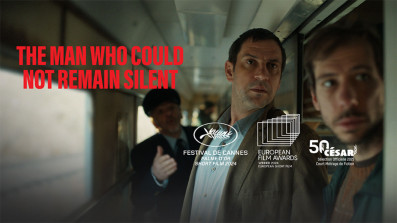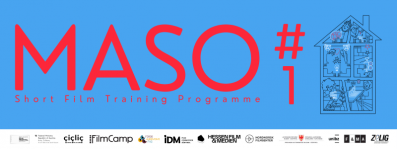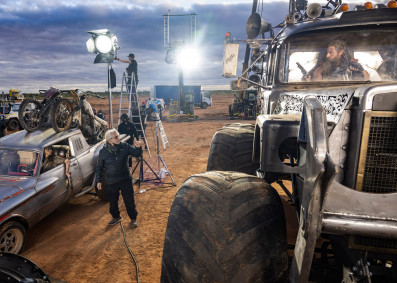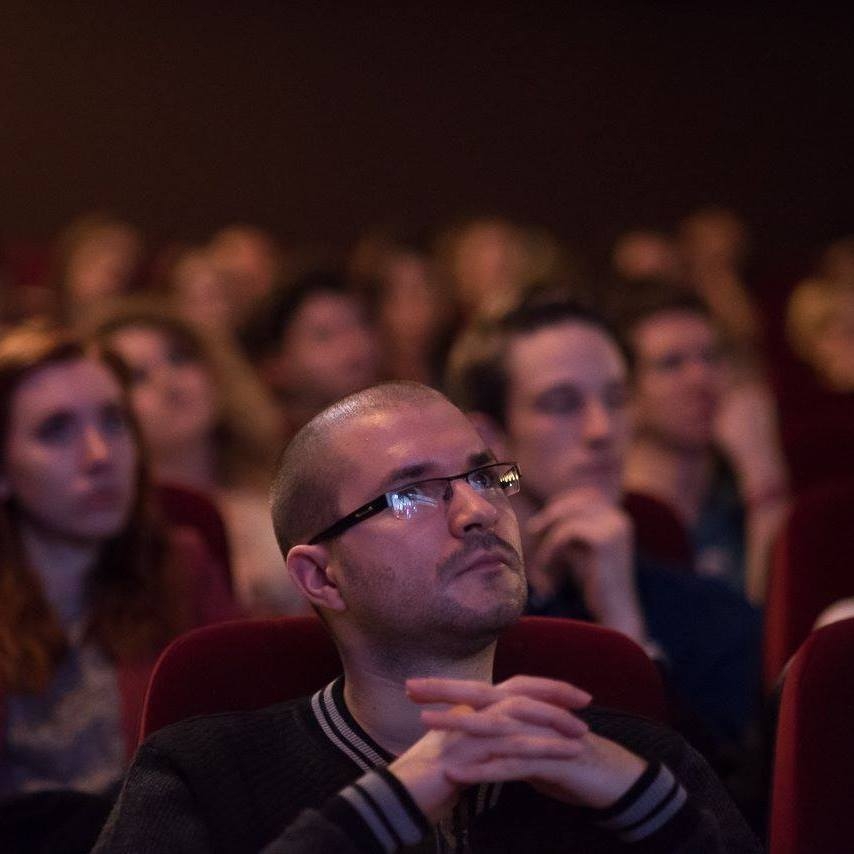
Interview with Adam Csiger the Hungarian critic from film magazine Filmvilág
Tettyo Saito talked with Adam Csiger about Hungarian film history and film critique in Hungari
For Japanese cinema magazine, Z-SQUAD Tettyo Saito now features on Eastern Europe cinema history which Japanese cinephiles don't know about a lot. For example, Romania, Slovenia, Montenegro and Belarus etc. This fall, they try to focus on especially the film history of two magnificent countries; Hungary and Croatia. This time, Tettyo had a chance to interview with Adam Csiger, who works as a film journalist based in Budapest and has written hundreds of articles for a dozen of online and print outlets as a freelancer since 2009. They talked about underknown Hungarian maverick Gábor Bódy, long tradition of Hungarian cinema, how Laszlo Nemes' works are accepted in Hungary. We at Duart are glad that we can publish the English version of the interview on Duart.
At first, why do you want to be a film critic? How did you become a film critic?
I think the film is the richest and the most complex art form, a combination of all the other arts. It has the power to do many things, the viewer can experience different perspectives, worlds and even lives to some extent. It opens the world for the viewer, so it’s easy to fell in love with. I always loved to write about my experiences and take notes for little reason, so it came naturally. I also studied some screenwriting, which gave me what I think is a good angle as a film critic, because you learn all the tricks of the profession and see a lot of rookie mistakes. I also think that film criticism is very important because film has such power that it can change the way people think, so somebody has to be able to hold the filmmakers accountable. And there are also two movies that inspired me: Scream with all its witty dialogues about movies and Scream 2 with the scene in which film students talk about sequels in class. Seeing that scene I thought that’s the coolest thing you can do in college, and it was.
When you started to be interested in movies, what movies did you watch? And what kind of movies could you watch in Hungary at that time?
In the nineties and 2000s, Hungarian movie theatres were dominated by Hollywood movies as much as they are today. There were very few good Hungarian films, so as a kid I grew up on TV: Disney, Cartoon Network and Dragon Ball. During high school in the 2000s, I got access to a good vidéothèque and watched many movies with my mom who is a literature teacher. I then chose Liberal Arts because they had film classes, and then did my masters in film theory and history. I was not a fan of Hungarian cinema, I wish I were since everybody has the best possible access to their own language, culture and history. But I loved American, Italian and Japanese movies, old B-movies, auteur genre filmmakers (Scorsese, De Palma, Tarantino, Verhoeven, Cronenberg), the boldest works of Terrence Malick, David Lynch and Alejandro Jodorowsky, great TV like Breaking Bad; Mario Bava and Dario Argento, Ishii, Tsukamoto, Miike, Onibaba, Hausu and Jigoku, and the best of anime. Seeing Kurosawa movies and the Shinobi no mono-series was like watching Star Wars. When I graduated around 10 years ago, torrenting was common in Hungary, so even if you didn’t do it yourself, you could get any movie easily. But I’m pretty sure I have one of the biggest DVD collections in Hungary, I was collecting audio commentaries for years.
What is the first Hungarian film you've ever watched? And how was that?
I’m not sure I remember, but I think it was Honfoglalás in 1996, a period piece about our national origins. I was around 8 years old in elementary school and they took us to the cinema to see it in class. I remember we didn’t pay much attention at that age. There were probably classics available on TV but the next Hungarian movies I saw were the relatively big commercial Hollywood-style movies of the time, A miniszter félrelép in 1997, Kontroll in 2003. Then as a film student, I saw the biggest classics like Körhinta, A tanú, Szegénylegények, Mephisto and A kis Valentino, and many more influential Hungarian movies we had to watch to pass the tests and graduate. But I think it took me until 2016 to truly realize the value of Hungarian cinema when Martin Scorsese’s Silence - the best film of the 2010s in my opinion - came out, and it reminded me of Szegénylegények, and I remembered Scorsese praising Jancsó’s works.
What is the most outstanding characteristic in Hungarian cinema for you? For example, French cinema has a philosophy about love, Romanian cinema has a thorough realism and dark humour etc. Then, how is the Hungarian cinema?
I think pointing out that some theme is dominant in Hungarian cinema would be simplifying it. What I learned from reading and doing interviews with filmmakers is that luckily they don’t think like critics at all, they all have their particular interests and passions. Of course, the job of the critics is to think different too, but also probably every single one of us would give a different answer to this question depending on what they find interesting. As for me, I think it can’t be ignored that the Golden Era Hungarian cinema - from the fifties to the eighties - was made in a country of 10 million people that was basically a socialist dictatorship and literally a second world country. This too is simplifying it, but the best of those Golden Era movies definitely dealt with the environment they were made in, on some level.
What is the most important Hungarian film in the Hungarian cinema history in your opinion? And why?
If I had to pick just one it would be Mephisto by Szabó István, our first Oscar-winner (as a foreign language film), starring Klaus Maria Brandauer. It is a Faustian story about an actor’s trials and tribulations in Nazi Germany, but it obviously speaks about the system it was made in, where artists experienced a conflict between individuality and totalitarianism. The director is a bit controversial to this day because he was an informant of the regime's secret police. This film is probably a good example to what I meant in my answer to your previous question, but so is Szegénylegények or A tanú.
If you choose just one favorite Hungarian film, what is this? And what is the reason? Is there a personal memory?
I don’t have any favourites, but I can name some that were a pleasant surprise and maybe worth discovering abroad. Jankovics Marcell’s animations are as cool as the best Japanese anime, for example János vitéz and Fehérlófia. Szindbád is a gorgeous collaboration between director Huszárik Zoltán and our “King of Actors” Latinovits Zoltán, who both died young. Meteo is a cool post-apocalyptic film from 1990, made in the final days of our Eastern Bloc-era, and For Some Inexplicable Reason from 2014 is the Hungarian Annie Hall and a snapshot of my generation.
From outside of Hungary, one of the most famous auteurs for the world cinephiles is Bódy Gábor. When I watch his works like "Nárcisz és Psyché" or "Kutya éji dala", I'm wholeheartedly impressed with how raw and devastating they are. His liberating, eternally young spirit always makes me cry. But, how are he and his works accepted by Hungarian people now?
He is a very interesting and somewhat mysterious figure since he is also said to have been an informant and died young under unclear circumstances. He was also interested in film theory and had experimental ambitions, but also directed a huge production, Nárcisz és Psyché. I had the privilege to interview Udo Kier about Nárcisz és Psyché, and he said that it was an unusually expensive and long shoot, a really high profile production. He and Kier also worked together on TV productions (Krétakör, Katonák), and his graduation movie Amerikai anzix is worth discovering as well. I like Kutya éji dala for maybe an unorthodox reason, that it featured my favourite Hungarian band VHK - Galloping Coroners. In academic circles, Bódy is held in high regard, but I think he is a bit underrated and forgotten in Hungary.
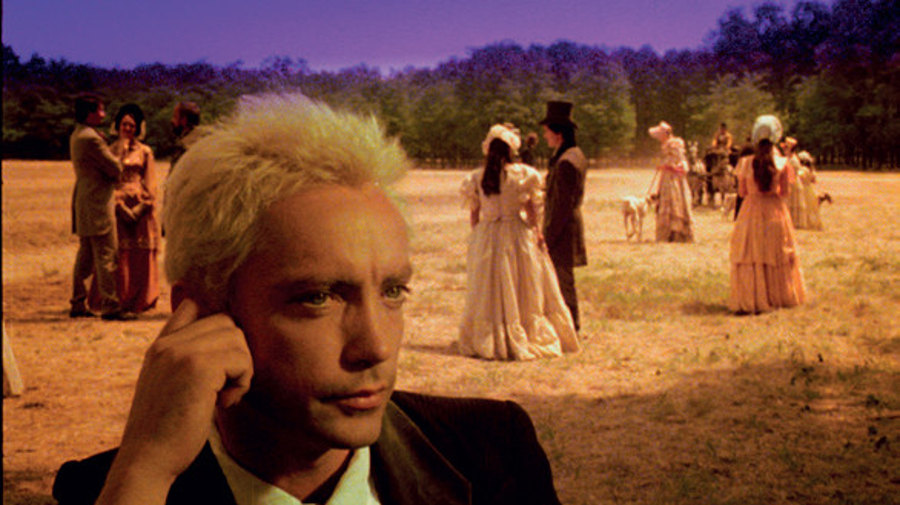
What amazes me always when I watch Hungarian cinema is how they use long-take with breathtaking elegance and fastidious effort. Through Hungarian cinema history, this technique is inherited by Hungarian auteurs. Radványi Géza to Jancsó Miklós, Gaál István to Bódy Gábor, Tarr Béla to Nemes László. But mysterious to foreign people like me is why this technique resonates with the spirit of Hungarian auteurs through history. Do you think what the origin of this inclination to long-take is, and how this technique is constructed?
You are right, it is a tradition in Hungarian cinema, you can find it in Genezis (director Bogdán Árpád, 2018) for example, to name a recent movie. Tough question though, a PhD student or a film professor can spend their best years on researching that topic. And like I said, filmmakers are very different, and a long take can be used many ways, from realism - not cheating reality with cuts - to just simply showing off. But filmmakers probably inherit this from their masters and idols. For example, Jancsó was inspired by Antonioni, Tarr probably by Jancsó, and Nemes by Tarr. And also director Szőts István’s Emberek a havason is said to have inspired the Italian Neorealism, so we might have had an influence on the Italians as well.
And the most important figure in the 2010's Hungarian cinema is definitely Nemes László. His works like "Saul fia" and "Napszállta" are raved by international critics and cinephiles. But what I want to really know is the reaction of Hungarian people about Nemes' works which depicts the dark history of Hungary. And I also want to know about your honest thoughts on him and his works.
I don’t think many people had a problem with the subject matter, maybe a few, but that happens. Son of Saul was not only an Oscar winner but also a rare hit in Hungary, the Cannes hype probably helped with that. I wrote a lot about it, saw it three times already, and once with the DVD’s audio commentary. I was a bit concerned beforehand about Napszállta, because Nemes had to live up to a huge hype, and then there’s the so-called “sophomore slump” when you have a first breakout movie that everybody on the production believed in, and then with all the success, the director is told that he is a genius and is given complete creative freedom, more money, and the movie ends up an ambitious mess. Not saying this is what happened, but Napszállta was more polarizing in Hungary then Son of Saul. A few critics hailed it as an uncompromising arthouse film, others complained that it was frustrating and pointless. I’ll probably have to see it again, I thought that the style and the content of Son of Saul was a perfect match, and to see the same style with a different kind of story was a bit puzzling for the first time, it was so different. But I’m glad it is recognized internationally.
The 2010's ended several months ago. So I want to ask, what is the most essential Hungarian film in the 2010's in your opinion? For example, Nemes László's "Saul fia", Mundruczó Kornél's "Fehér isten" and Enyedi Ildikó's "Testről és lélekről". Personally, I want to mention Till Attila's "Tiszta szívvel" for one of the best films by the new talent in the 2010's and its groundbreaking depiction of disabled people.
I think it has to be Son of Saul. In the 2010’s the state-financed filmmaking in Hungary was led by the late Andy Vajna’s Film Fund, and personally, I suspect this movie is everything we wanted our movies to be in this decade. It is not “only” a well written, directed and acted drama, but also a real cinematic experience that you really have to see on the big screen, from 35 mm film. It’s like a time machine. Nemes combines the best Hungarian filmmaking traditions with inspiration for example from the great Soviet movie Come and See from 1985. This movie deals with our own particular history but on the other hand, it is very universal. It’s also actually a low budget movie that looks expensive. Very daring in its style but also has a story that’s pretty traditional, like Antigone.
How is the current situation of Hungarian cinema? From the outside, it seems good. Even after Nemes László, new talents appear at the prestigious film festivals like Kenyeres Bálint at Locarno, Szilágyi Zsófia at Cannes and Horvát Lili at Venice etc. But from inside, how do you see the current situation?
From a critic’s standpoint I think we have a lot of talent, often producing surprisingly good and underrated movies (despite all the difficulties and challenges of a small market), and we’re learning a lot about this craft the Iron Curtain has kept from us. We have proved that we can make arthouse films as good as anybody. And this might be a great time to make genre films that can gain global attention: for example under the pandemic, a Polish movie entitled 365 Days was a huge hit on Netflix. And the audience didn’t even like it!
And how is the current situation of film critique in Hungary? Sadly there is no information about it in Japan. Still, I met with the works of wonderful Hungarian critics like Strausz László, Bátori Anna and Vincze Teréz, so it seems good to me. But from inside, how do you see the current situation?
Naturally, I would love to see more and more film journals and critics thrive, but I think what truly matters is not the quantity but the quality, so a much bigger country would be fine with the number of critics we have if they are really good. I think we have many inspiring professors and film critics who can get both young people and the filmmakers interested in film criticism. I was very fortunate to catch the very last class of the legendary Király Jenő at ELTE a decade ago, and at the University of Debrecen and ELTE my teachers have been a great inspiration to me and encouraged me to pursue this profession.
You write a film article for Hungarian film magazine Filmvilág. Please explain to Japanese readers about this magazine. How does it work for film critique in Hungary?
I wrote for them for years almost every month, nowadays I do it occasionally, my last article came out last summer about the film festival in Shanghai. It’s a monthly print film journal (translates to Film World) that’s basically the Hungarian equivalent of Cahiers du Cinéma or Sight & Sound. The standards are very high, they publish essays, interviews and reviews written by the very best Hungarian minds thinking about the film. You can hardly call yourself a film critic if they never published you. Their online archive can actually teach you how to write about film, I often used it when I was a college student and when I started out as a young freelancer writing for smaller outlets. Also, some filmmakers read it and I suspect some of them got very inspired by certain articles.
Who is the most remarkable new talent in Hungarian cinema for you? For example, from outside, I want to mention Szöllősi Anna for her delicate texture of the animation and Baranyi Benő for his acute critique into Hungary's dark reality. What is your opinion?
I’m glad these two young filmmakers have your attention, but I’m not sure I would like to name names, because filmmaking is teamwork, a collaborative effort, and the directors are sometimes overrated, while the screenwriters, producers, directors of photography, and actors are often underrated. But there is one recent movie I think is pretty underrated: it’s entitled Nyitva from 2018. It’s a commercial movie, a romantic sex comedy, but I think it’s so good that if this screenplay ever got into Hollywood, it would have been made with the hottest cast. I would remake it if I was a Hollywood producer. It’s about a very universal subject - an open relationship - and you just can’t wait to see the next scene when you’re watching it. It’s on Netflix, I don’t know if it is available in Japan, but if it is, check it out. And I’m also looking forward to seeing Post Mortem, both a period piece and a horror movie.




